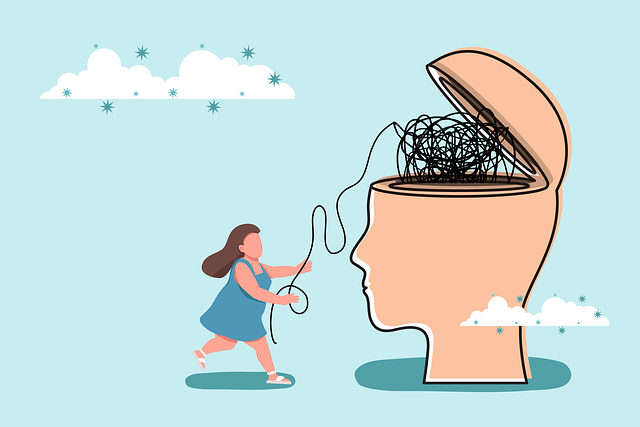Lone Tree Bilingual Therapy's marketing strategy should focus on reaching individuals seeking mental wellness solutions tailored to their linguistic needs, particularly immigrants or expatriates. The app distinguishes itself globally by offering content in multiple languages, ensuring cultural sensitivity and relevance. To effectively market Lone Tree Bilingual Therapy, utilize platforms like Instagram and TikTok for engaging video content, incorporate empathy-building tactics, and partner with mental health influencers. Measure success through KPIs such as active user numbers, session frequency, and completion rates of therapeutic modules, ensuring the app fosters inner strength development.
Lone Tree Bilingual Therapy can elevate its mental wellness app through a strategic marketing approach. This article guides you through developing an effective strategy, focusing on understanding the target audience and their unique needs. We’ll explore crafting a compelling value proposition, leveraging suitable marketing channels, and setting measurable KPIs for success. By implementing these steps, Lone Tree Bilingual Therapy can ensure its app resonates with users seeking mental health support, fostering growth and positive impact in today’s digital landscape.
- Understanding Lone Tree Bilingual Therapy's Target Audience
- Crafting a Unique Value Proposition for Mental Wellness App Marketing
- Choosing Effective Marketing Channels and Strategies
- Measuring Success: Key Performance Indicators (KPIs) for Mental Health Apps
Understanding Lone Tree Bilingual Therapy's Target Audience

Lone Tree Bilingual Therapy’s marketing strategy must be meticulously tailored to reach and engage its target audience—individuals seeking mental wellness solutions that cater to their unique linguistic needs. By understanding the diverse demographics and specific challenges faced by those in need of therapy services, the app can effectively position itself as a comprehensive, accessible resource.
The target audience encompasses a wide range of individuals who may struggle with mood management and the development of a consistent self-care routine. These users could be immigrants or expatriates for whom maintaining mental health in a new linguistic environment presents an additional barrier. Lone Tree Bilingual Therapy’s app can cater to this need by offering content in multiple languages, ensuring that self-care practices and mood management techniques are not only accessible but also culturally sensitive and relevant.
Crafting a Unique Value Proposition for Mental Wellness App Marketing

In today’s digital age, mental wellness apps are becoming increasingly popular as people seek accessible and personalized support for their emotional well-being. To stand out in a competitive market, it is imperative to craft a unique value proposition that resonates with the target audience. For instance, Lone Tree Bilingual Therapy can position itself as more than just an app; it can be a companion on the journey to mental clarity and resilience. By emphasizing its bilingual capabilities, the app caters to diverse user needs, ensuring accessibility and cultural sensitivity—a significant advantage in a global market.
The marketing strategy should highlight how the app goes beyond traditional therapy by offering tailored solutions, such as integrating Conflict Resolution Techniques and promoting Positive Thinking exercises. By addressing various aspects of mental health, Lone Tree Bilingual Therapy can attract users seeking holistic improvement. This approach not only caters to individual needs but also aligns with broader trends in Mental Health Policy Analysis and Advocacy, emphasizing the app’s role in fostering a supportive environment for mental wellness globally.
Choosing Effective Marketing Channels and Strategies

In developing a marketing strategy for mental wellness apps, particularly one like Lone Tree Bilingual Therapy that caters to diverse audiences, it’s crucial to select marketing channels and strategies that resonate with your target demographic. This may include leveraging social media platforms known for their active engagement of younger generations, such as Instagram and TikTok, where short-form video content showcasing the app’s features and user testimonials can be highly effective. Additionally, incorporating Empathy Building Strategies in your content strategy, like sharing personal stories or hosting live sessions with mental health experts, can foster a sense of community and trust among potential users.
Beyond digital channels, consider partnerships with organizations or influencers focused on Mental Health Education Programs Design to amplify your reach. Collaborating with schools, universities, or community groups not only exposes the app to new users but also positions it as a valuable resource for promoting Emotional Healing Processes. A multi-faceted approach that combines online and offline tactics will ensure that your marketing strategy effectively targets those in need while showcasing Lone Tree Bilingual Therapy’s commitment to mental wellness.
Measuring Success: Key Performance Indicators (KPIs) for Mental Health Apps

Measuring success is a vital aspect of developing any marketing strategy, especially for mental wellness apps that play a crucial role in people’s lives. Key Performance Indicators (KPIs) provide a quantitative framework to evaluate the app’s performance and user engagement. For mental health applications, several KPIs can offer valuable insights. One key metric could be the number of active users over time, indicating the app’s appeal and retention rate. Additionally, tracking user sessions per day and average session duration reveals how often and for how long individuals interact with the app, highlighting its potential therapeutic value.
Another essential KPI is the completion rate of specific app features or programs, such as those focused on stress management, anxiety reduction, or social skills training (a relevant term in Mental Health Policy Analysis and Advocacy). For instance, Lone Tree Bilingual Therapy’s app might measure the completion rate of its cognitive-behavioral therapy modules. High completion rates suggest that users find the content engaging and beneficial, fostering their inner strength development (a core aspect of many mental wellness programs). These KPIs empower developers to refine their apps, ensuring they meet the unique needs of their target audience effectively.
Developing a comprehensive marketing strategy for a mental wellness app, such as those offered by Lone Tree Bilingual Therapy, requires a deep understanding of the target audience and a clear value proposition. By leveraging effective marketing channels like social media, email campaigns, and influencer partnerships, you can reach a broader spectrum of users in need of support. Measuring success through relevant KPIs ensures that your efforts are aligned with positive outcomes for users. With the right approach, Lone Tree Bilingual Therapy can effectively promote its mental wellness app, reaching and assisting more individuals on their journey to improved mental health.










